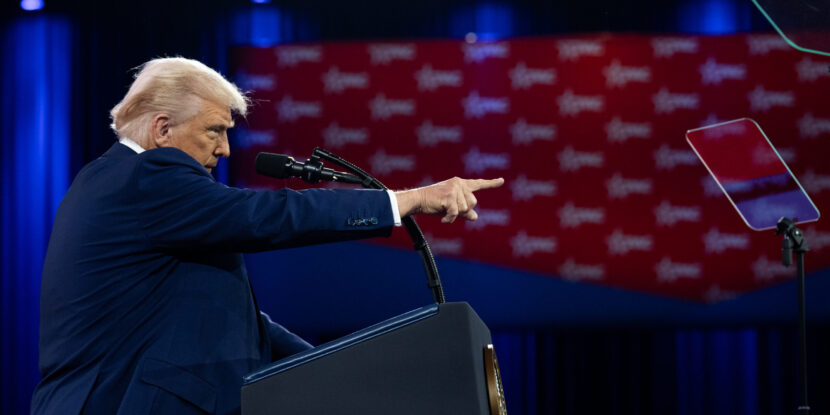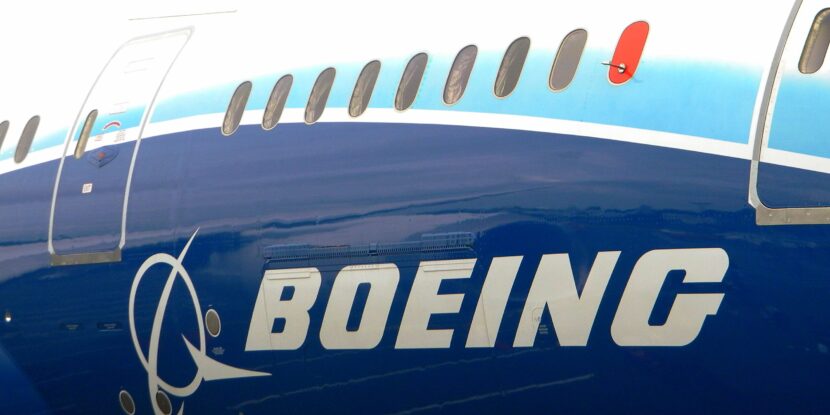
PULSE POINTS:
❓What Happened: NVIDIA plans a substantial investment in U.S. infrastructure to create AI supercomputers.
👥 Who’s Involved: NVIDIA CEO Jensen Huang, President Donald J. Trump.
Your free, daily feed from The National Pulse.
📍 Where & When: Arizona and Texas, announcement made on April 14, 2025.
💬 Key Quote: “The engines of the world’s AI infrastructure are being built in the United States for the first time.” — Jensen Huang.
⚠️ Impact: Potential growth in U.S. chip manufacturing; concerns about the impact of tariffs on demand.
IN FULL:
Tech giant NVIDIA has announced a major push to manufacture artificial intelligence (AI) supercomputers in the United States, committing to a $500 billion investment. This marks the first time the company will build its AI infrastructure domestically. President Donald J. Trump responded to the announcement on Truth Social, emphasizing that necessary permits for NVIDIA and similar businesses will be expedited to support what he described as the “Golden Age of America.”
The initiative involves over a million square feet dedicated to the production and testing of NVIDIA’s specialized Blackwell chips in Arizona, alongside the assembly of AI supercomputers in Texas. This investment is expected to realize up to half a trillion dollars in AI infrastructure over the next four years.
NVIDIA’s CEO, Jensen Huang, highlighted the strategic advantage of U.S.-based manufacturing. Huang stated it allows the company to better meet the demand for AI technology while fortifying supply chains and increasing operational resilience. “The engines of the world’s AI infrastructure are being built in the United States for the first time,” Huang said.
The announcement comes amid the Trump Administration’s stance that partial tariff waivers for electronics, such as phones and computer parts, are temporary. These waivers will remain until a new, industry-specific tariff strategy is devised. Trump’s economic strategy encourages global manufacturers to relocate production to the U.S.
The move by NVIDIA comes after President Trump announced a significant investment by South Korean auto manufacturer Hyundai last month. The company will invest $21 billion in the United States. At least $5.8 billion of which will be invested in a new steel plant in Louisiana, providing over 1,400 jobs.
President Trump’s tariff policies have brought nearly all affected countries to the negotiating table except China. The Communist-led government has instead opted for its own retaliatory tariffs.

PULSE POINTS:
❓What Happened: The Chinese Communist Party (CCP) has instructed domestic airlines to halt acceptance of Boeing jet deliveries amid escalating trade tensions with the United States.
👥 Who’s Involved: The Chinese government, domestic Chinese airlines, Boeing, U.S. companies supplying airline parts, and President Donald J. Trump.
Your free, daily feed from The National Pulse.
📍 Where & When: The announcement occurred in China in the context of ongoing trade disputes with the U.S.
💬 Key Quote: “We do not see China as critical to Boeing’s ramp over the next few years,” said Seth Seifman, an analyst with JPMorgan. He added: “China will be important longer term, however.”
⚠️ Impact: Boeing’s stocks dropped by 1.6 percent in morning trading. China’s heightened tariffs on U.S. goods to 125 percent complicate aircraft and parts shipments, affecting affordability. The trade rift may disrupt Boeing’s planned deliveries, impacting future transactions.
IN FULL:
The Chinese Communist Party (CCP) is directing its country’s aviation sector to stop receiving Boeing jets as U.S.-China trade tensions intensify. The Chinese government’s directive also includes a halt on the purchase of U.S.-made airline components. Last week, China’s communist government announced it would increase tariffs on American goods to 125 percent. This followed an announcement by U.S. President Donald J. Trump of a 145 percent tariff on all Chinese imports.
Notably, Boeing-made aircraft comprise an estimated 40 percent of the total global commercial aviation market. France-based Airbus holds nearly 60 percent of the market, with Canada’s Bombardier Aviation and Brazil’s Embraer S.A. making up the small remainder. Additionally, U.S.-made airline parts account for a significant share of components sold around the world.
The move by China could significantly impact Boeing, which was set to deliver approximately 10 of its 737 Max models to Chinese airlines like China Southern Airlines, Air China, and Xiamen Airlines. However, payment and delivery processes for some aircraft may have been finalized before the trade conflict expanded, meaning those specific deliveries might proceed. In addition, the CCP restrictions could cause considerable problems for China’s domestic commercial aviation industry, limiting the ability of the country’s airlines to source critical components—with the use of aftermarket or refurbished parts increasing safety risks.
“We do not see China as critical to Boeing’s ramp over the next few years,” wrote Seth Seifman, an analyst with JPMorgan, in an investor note. He added: “China will be important longer term, however.”
Following the announcement of the CCP directive, Boeing’s stock shares fell 1.6 percent, or $2.59, to $156.74 as trading began Tuesday morning.
The restrictions on Boeing are one of the few areas where China can directly impact American exports. As a surplus economy, China exports far more than it imports—especially in its trade relations with the U.S. Notably, American exports to China are primarily agricultural in nature, with aircraft and airline components comprising a much smaller share.
show less

 2 months ago
2
2 months ago
2








 English (US) ·
English (US) ·